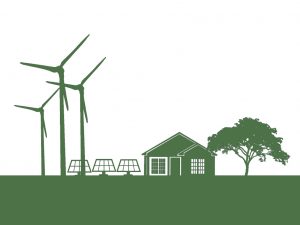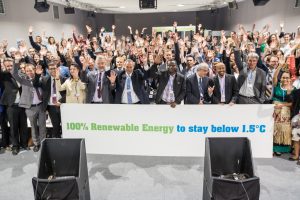This idea – ‘militants cannot blow the sun’, was first echoed during a meeting OGN attended. At that meeting, renewable energy stakeholders, including journalists believed Nigeria is spoilt for choice in its craving to overcome its energy challenges.
It was from this meeting that a decision on this editorial was taken by OGN, having considered its merits and deep implications.
Thinking through the fact that about 96 million of Nigeria’s citizens are without electricity, these stakeholders said the country would be doing itself all the goods it can think of if she sensibly plans a pivot to renewable energy solutions.
They equally asked that she takes a cue from what her eastern African neighbours are doing in this regards.
Though the situation has largely remained the same, at the time of this meeting, on-grid power generation from the country’s gas thermal and large hydro plants revolved around a paltry 3200 megawatts (MW).
It had nosedived from 5074MW generated in February 2016 for the first time to that low level because gas supplies to the plants were cut off by militants in the Niger Delta region.
Chiefly driven by the government’s unending quarrel with these militants, gas supplies dropped as the militants blew up oil pipelines and production facilities.
Then, subsequent thoughts around this development at the meeting had participants saying, ‘Avengers can blow the pipelines but not the sun.’
At OGN, we believe this statement to be very true. We also believe it affirms our complete conviction in the capacity of solar generated electricity or other economically viable renewable energy sources to give millions of Nigerians access to electricity.
Safe for the probable vandalism of large scale solar power or RE equipment and installations, it will be near impossible for militants to stop the sun from shinning on rooftops of Nigerian homes, or even the wind from turning turbines to give light to farm settlements around the country.
As part of our position on viable options open to Nigeria on its energy crisis, we believe that it is a ‘no-brainer’ for anyone to know that solar or RE sources are better secured forms of generating and electrifying homes, and that Nigeria should not play the ostrich in this.
Fair enough, we do not need to reinvent the wheels because there are RE solutions that have been tested and certified good for all forms of energy generation. It only requires that Nigeria adapts and approves proactive RE policies to drive up the use of RE to power her homes, offices, hospitals and farm settlements.
This is also following a recent report by the International Renewable Energy Agency (IRENA) that Africa could generate up to 70 gigawatts (70,000 megawatts) of electricity using solar by 2030 if the right policies to encourage solar PV deployment are put in place, and Nigeria’s declaration to have 50% of her electricity come from RE by 2020.
We insist from this that the time is now for Nigeria to make this pivot knowing that militants cannot blow the sun.





